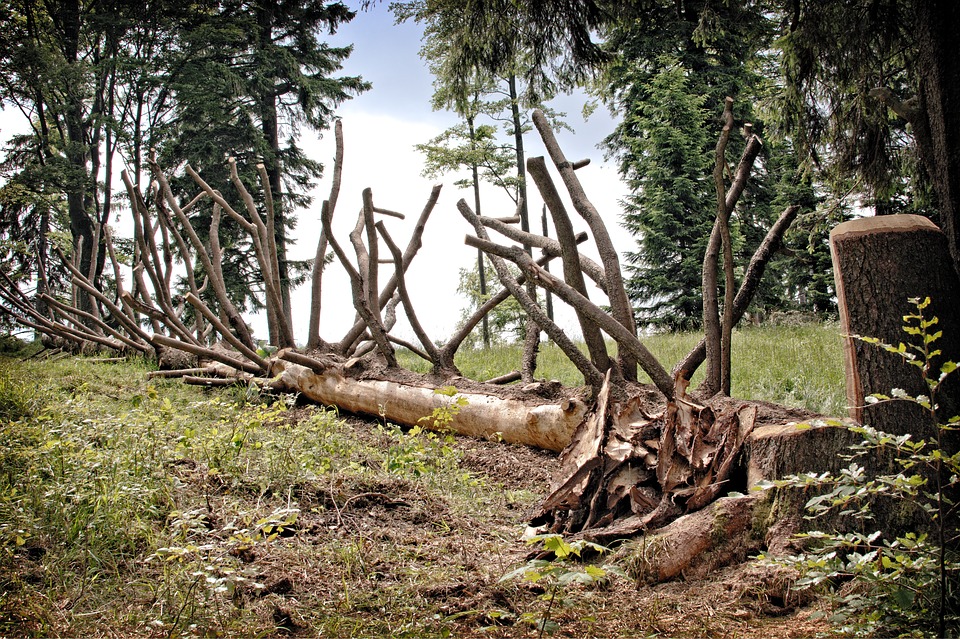What is the sound of one hand clapping?
I remember the day I figured out this riddle as a wee youth, only to see it replicated on an episode of the Simpsons shortly thereafter. Bart and I both thought alike: a clap does not need two hands to make sound, one hand can clap and make a pleasantly fleshy soft impact sound.
If a tree falls in the woods and no one is there to hear it, does it make a sound?
I am a very rational, logical person (excessively so according to my girlfriend), and I always considered this riddle just plain dumb. Of course it makes a sound! Our brains and ears do not create sound (except perhaps in tinnitus and hallucinations), we merely interpret and filter the waves bouncing around us.
Furthermore, even if you think no one is around to hear something, what if someone is? You don’t have to be standing right next to a sound source either. What about being so far away, you hear a noise, think, “I wonder what that was?” and then carry on your day.
In my sound design, I am often acutely aware of these sounds that occur just at the edge of our perception because it is these tiny sound fragments that can fill our virtual worlds with a sense of life, a modicum of reality just as they do in the real world. I call these peripheral sounds, as they operate just at the bounds of our perceptive hearing and I feel they bring so much character and grounding to the worlds we create.
I went outside to record some rain sounds the other night and as I was about to begin recording I heard the faintest train whistle from many miles away. Did my hearing that train whistle create the train that was hauling humans and cargo along the coast between Los Angeles and Vancouver? Of course not. But if I were creating a soundscape for a project that took place in a city just a few miles from the shore, adding distant train sounds that the user would never see would indeed create that unseen train in the world. Perhaps it’s just background noise to the user, or maybe they would hear it and visualize the train moving along its track. Regardless of whether it is noted or not, it is still adding to a greater sense of place.
So much of our work is tied to providing sound for existing visuals, but it is what we sculpt from what is not there that can create an uncanny sense of time and location. I’m always on the lookout (or should that be listenout?) for these sounds in the real world and trying to add them to my projects, just at the edge of audibility. By which I do not mean they need to be so quiet as to be nearly silent, but just that they blend into the soundscape as if they are coming from some distance away, comfortably settled into the din of the world.
And how about you? Is peripheral sound is an important part of your soundscapes, or perhaps it is an element more prone to making a mix overly busy? Share your thoughts on the effectiveness (or lack thereof) in the comments section below.

re the tree – you answer literally, as though physics is the only way of thinking about, or listening to such a sound. Providing such a simple answer based only on physics should not be the end of your thinking on the subject. Of course a tree falling will produce a sound, but your answer only deal withs half of the question. If iw as grading your answer I would give it a FAIL. Using physics you have declared a falling tree makes a sound, but why is the listener important? What role could a listener play in whether a tree makes a sound?
For example say you have ten people hear that exact same tree fall – each would hear it and remember it differently. For example, say one of those ten listeners fathers died in a forestry/tree accident when he was a boy. Do you think he will hear the same tree fall sound as the other nine? And another of the ten is an environmentalist, adamantly opposed to forestry. Do they hear the same tree fall sound as the others? Another listener watched the first Blair Witch film for the first time the night before, do you think they will hear the same tree sound? You do a dis-service to both the koan and to your own mind, to dismiss it as a “dumb riddle”.
the riddle “does it make a sound” not “does it sound different to the listeners who each have their own personal history and delimmas with trees” its not “how do you interpret the fall,” its not “how does the noise affect you emotionally” only “does it make a sound” everything you have written already assumes it does so i would say yes. yes the tree makes a sound and even if theres no people there to hear it surely there has to be animals ;)
Hi Bradley,
yes i think i do think of these kinda sounds which merge with my soundscapes. At times , i think like the way they lit a scene. How foreground, mid and back grounds together create a visual. the same is applied to when designing a time and space using sounds. the sound from a far away highway in the night heard from a interior village or a bird call going away all are peripheral sounds.
thanks for writing about this.